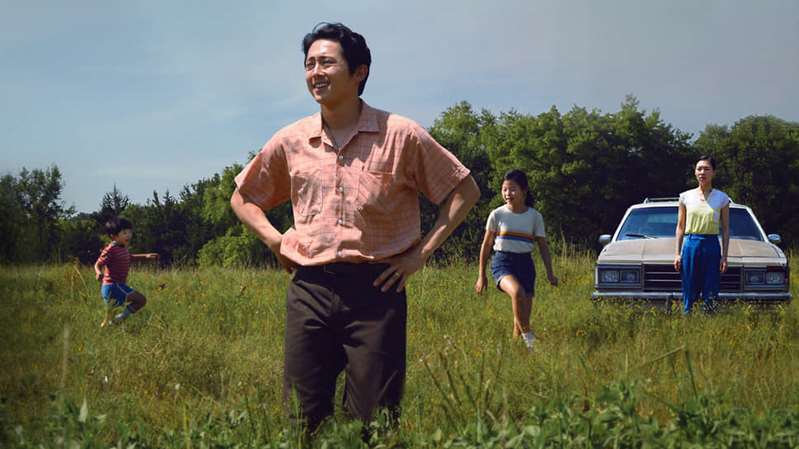
Lee Isaac Chun's drama Minari, nominating for six Oscars
Lee Isaac Chun's Minari, a family drama based on a Korean American director's memories of childhood on a farm in Arkansas, is released. The film won the Grand Prix and Audience Award at the 2020 Sundance Film Festival and is nominated for six Oscars. Watched by Yulia Shagelman.
The history of America is made up of the stories of migrants – people who abandoned their homes and went to unknown territories in search of a better life: from the pilgrims who sailed on the Mayflower to the pioneers who explored the Wild West, from the heroes of John Steinbeck's books and John Ford films to sitcom characters who moved to New York and Los Angeles from all over the world. Told through the prism of individual experience, these stories are both universal and specific. Each of them has both common motives – they are all about how difficult it is to grow roots in a new earth – and details that only private memory stores. For example, the memory of a grandmother who brings a bag of hot peppers from their historical homeland, a recipe for a medicinal drink made from deer antlers and seeds of minari – an edible herb that grows in any conditions, even where other plants do not survive, and is suitable even for soup , even in a salad, even so to chew.
Lee Isaac Chun's characters, drawn from his own family, are Jacob Yi (Stephen Yang) and his wife Monica (Han Ye Ri), who once left Korea together, and now, in the early 1980s, moving from California to the deepest rural south with two children: serious Anna (Noel Cho) and mischievous David (Alan Kim). The boy has a heart murmur, so his mother, exhausted by constant anxiety, forbids him to run, which is almost impossible for a six-year-old child. To prevent Monica from being lonely in a new place, Jacob agrees to dismiss her mother Sun Joo (Yoon E Jong) from Korea. At first, this grandmother – she doesn't bake cookies and doesn't cook at all, but swears loudly in Korean, smells strange and walks around the house in men's panties – David doesn't like it at all. But gradually they become closer to each other than all other family members.
In any immigrant history, one involuntarily waits for the topic of xenophobia to arise. She is not in Minari: white Arkansas – a foreman in a poultry farm, a clerk in a bank, a priest and parishioners in a church, a doctor in a children's hospital – meets the Y family with provincial hospitality, and in the tactless questions of neighboring children there is more curiosity than malice. However, they manage to make something similar to friendship only with the almost foolish Paul (Will Patton), ironically – a veteran of the Korean War. Perhaps it is the military background that is the reason why every Sunday Paul carries a heavy, roughly knocked-down cross along the village road, atoning for sins that both his neighbors and viewers can only guess. Like the older Y's, Paul is a stranger among his own people, and it is this sense of separateness, which at some point turns into solidarity, is more important for the picture than differences in religion or skin color.
Little David is an alter-ego of the director and screenwriter himself, so the film has double optics. On the one hand, this is the look of a child, for whom a mobile home, standing in the middle of a field overgrown with grass as tall as him; the forest surrounding this field, teeming with snakes; The gusts of wind behind the thin walls, which are called the unfamiliar word “tornado”, are part of one big amazing adventure. On the other hand, the former child, and now an adult author, at forty-two, also notices anxiety in the eyes of the mother, who rightly believes that living with a sick child an hour's drive from the nearest city is not the best idea, and her melting faith in her husband and his undertakings, and the constant struggle in which his father spends his days. Not only with a stubborn land that does not want to give the stranger water for free to irrigate the Garden of Eden, which he is trying to grow on it, but also with himself, with his own ideas about the duty of a man and the head of the family.
Both of these views – children and adults – are perfectly balanced in the film, so he does not lose his balance, slipping into a bright tale of childhood or into the tragedy of survival in spite of the climate, water prices, the system of bank lending and other blows of fate that befall Jacob I. The story grows like minari grass, which eventually becomes a natural part of the Arkansas landscape.
Read also:

